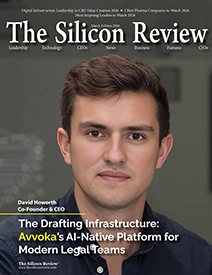>>
Industry>>
Art and Music>>
Spotify’s AI Composer Quietl...Spotify’s AI Composer Quietly Redraws the Boundaries of Music Production
The Silicon Review
08 April, 2025
Spotify’s launch of an AI-powered music composer that generates songs based on listener mood signals a turning point where industrial automation collides with emotional expression in the music industry.
On February 10, 2025, Spotify launched a generative AI music composer capable of creating entirely original songs tailored to a user’s emotional state—a development that subtly but definitively repositions the streaming giant from platform to producer. Powered by proprietary mood-mapping algorithms and deep neural audio synthesis, the composer scans user behavior, tone preferences, and listening context to generate compositions in real time. What’s at stake here is more than playlist personalization. Spotify’s system shifts the architecture of music production from human-driven creativity to algorithmically automated composition. By replacing traditional songwriting inputs with computational models trained on vast musical datasets, the company has created a mechanism where music adapts to individuals—not audiences.
While marketed as a user-centric experience, this is also a strategic move into vertical integration. By owning both the creation and distribution pipeline, Spotify may ultimately reduce its dependency on licensed content. This opens the door for scalable, royalty-free libraries that respond dynamically to user environments—whether for wellness, focus, or even commercial use cases. Industry executives across entertainment, advertising, and tech should see this as a signal. Music is no longer static; it is becoming programmable. The rise of algorithmic music production could disrupt revenue models for composers, rights holders, and labels. It also invites a regulatory gray zone—what constitutes original work when a machine writes the melody?
Spotify’s AI composer may feel like a novelty, but its implications are industrial in scale. Automated creativity is no longer theoretical; it’s now embedded in the fabric of the streaming ecosystem. For industries adjacent to audio—film, gaming, retail, mental health—the potential for customized, mood-responsive sound is both an opportunity and a wake-up call. The soundscape of tomorrow is being written by machines, and it listens to us more than we realize.





_2025-12-15_12-44-58.webp)